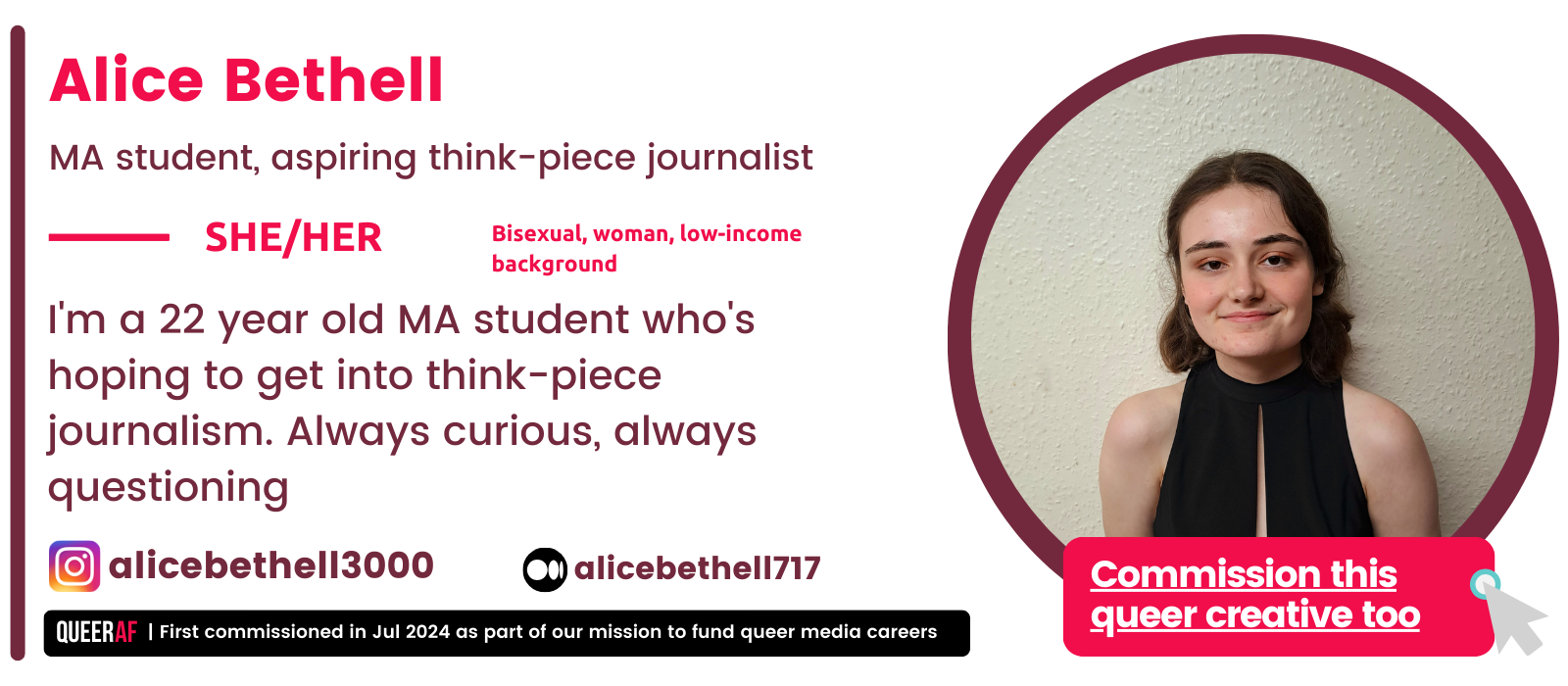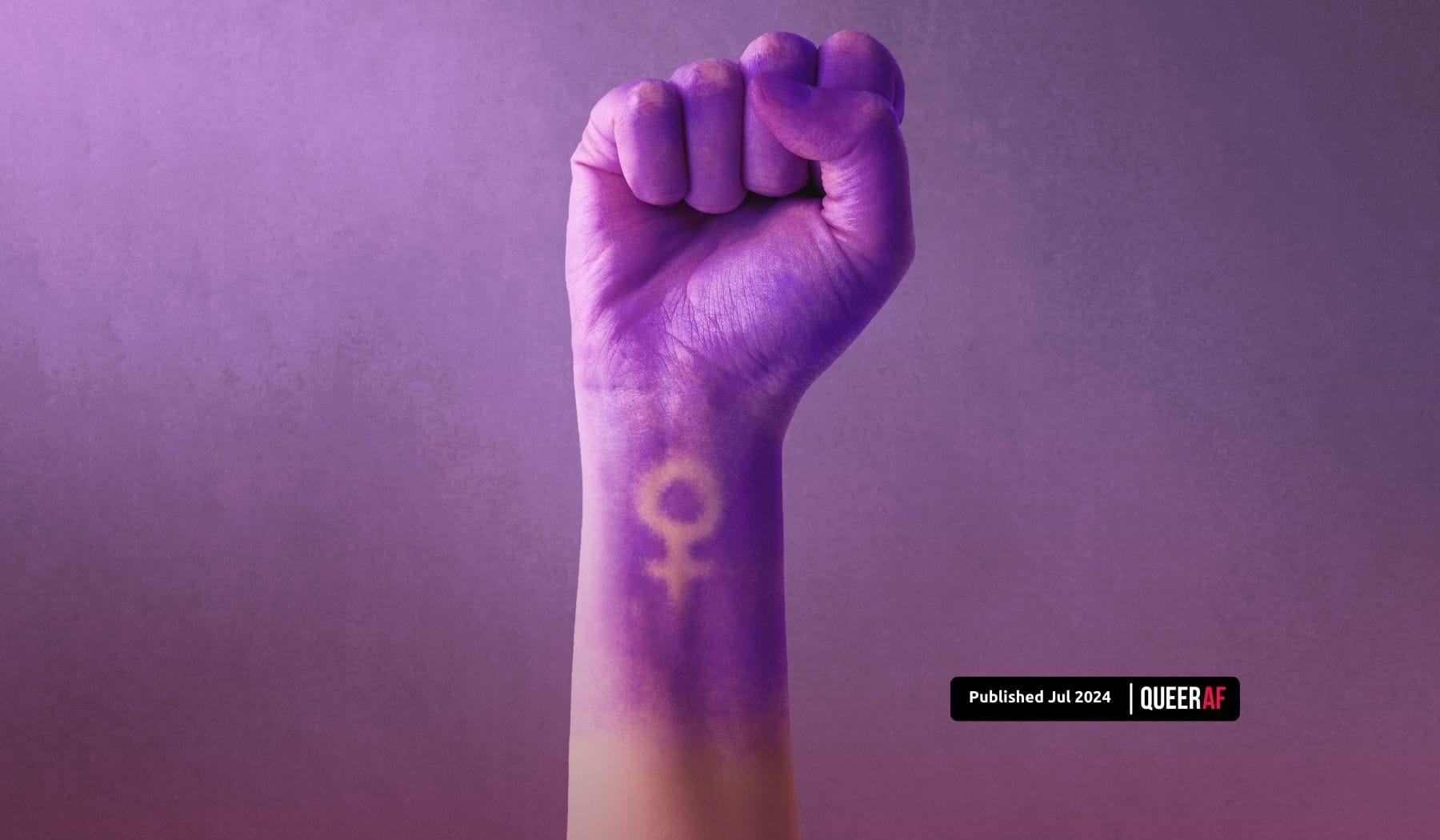
As a movement, feminism has been at the forefront of championing self-determination since the beginning. So why have so-called ‘trans-exclusionary radical feminists’ moved to remove this concept from feminism altogether?
After finishing Judith Butler’s new book Who’s Afraid of Gender?, I found an interview clip of them discussing the book. In response to the oft-weaponised question ‘What is a woman?’ Butler points out that “feminism began… by calling into question received notions of what a woman is”. That feminism has, quite intentionally, left that question open rather than answered, so there are no boundaries to what a woman can do.
Butler’s response captured for me why I find it so aggravating to see anti-trans activists claim their answer to this question is the only answer.
Alliances and crossovers between feminists and trans rights activists coincide because the rights to self-determination and bodily autonomy are at the core of both movements.
Meanwhile, multiple UK surveys suggest that not only do most Brits support trans people, but that British women tend to support trans people more than British men by a significant margin.
Perhaps this is because more women understand what it’s like to have their gender policed, even by other women.
It is through this shared understanding that feminists and people under the trans umbrella have come together many times to fight for the rights to our own bodies.
But, sadly, we exist in a world where many of those hard-earned rights are getting rolled back.
We’ve seen extraordinary rollbacks like the repeal of Roe v Wade in the United States. Where were these self-declared trans-exclusionary ‘feminists’ when that news was announced?
On other issues besides ‘the transgender issue’, why do they not speak?
It is hard to find a single anti-trans figure or organisation that balances their messaging with any of the other feminist concerns you might assume they have.
Contrast this with trans and trans-inclusive activists and the amount of overlap in their work that pushes for a better future. The sheer diversity of the people and their aims involved in trans rights struggles implies that they have a vision for the future, rather than a narrow-minded vendetta.
Intersectional activists are able to understand how factors such as race, class, gender, sexuality and many more intersect.
They accomplish this while also actively advocating for multiple causes such as trans self-identification, a free Palestine and abortion access. Is it just a coincidence that all anti-trans ‘TERFs’ have centred entirely on singling out trans people and never focused on any other feminist issues?
It betrays a lack of confidence in their ability to imagine a world without the patriarchy.
Butler’s book shows that any backlash to the reconsideration of gender is almost always “authoritarian at its core” and only guarantees “a return to a patriarchal dream”.
To move forward, we must understand that the most fundamental component of the anti-trans movement is not feminism. Rather, it is a fear of change and self-determination - reproducing a core tenant of patriarchy itself.

Get the Queer Gaze in your inbox each week with our free weekly newsletter or pitch to write an edition for us now.
Fighting for our rights can feel, at times, unobtainable.
That's why we desperately need to improve the media landscape.
We're doing that by helping queer creatives improve the way they communicate about our rights.
We're obsessed with communication. Knowing what's happening isn't enough. Awareness isn't enough. We need action.
That's why we don't just write the news, but we make sure you understand it.
When you know why it's happening, your limbic brain (the bit that processes your emotional responses) gets very excited. It drives action. Purpose. Understanding.
That's what we're teaching our writers about - not just good journalism practices, but how to show people why queer rights actually rock.
Alongside this massive newsletter, it's a big commitment. We're up to the task, but we can't do it without you. If you think what we do is valuable, please consider a membership.










